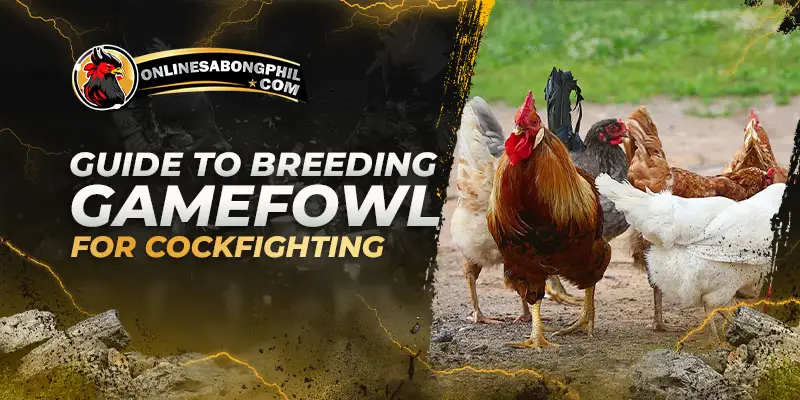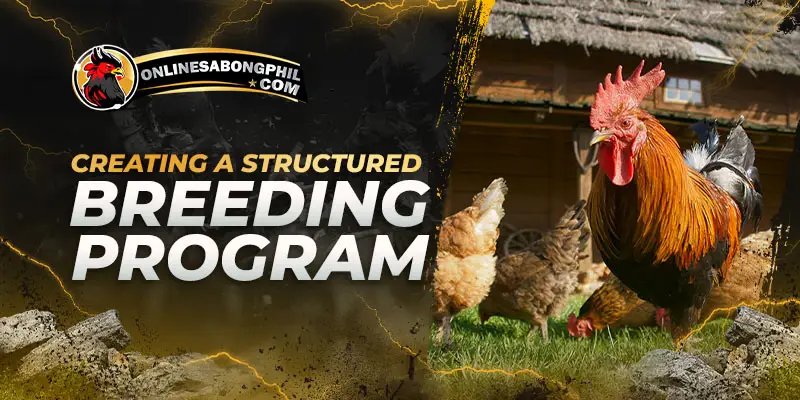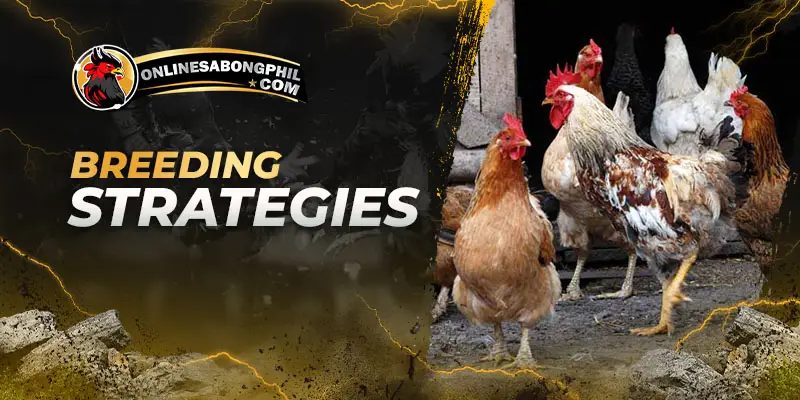Breeding strong, skilled fighting roosters is a tradition that goes back hundreds of years. This guide will teach you all about the process. We’ll cover choosing the best parent roosters, different breeding methods, raising healthy chicks, and training them for the fight. We’ll also remind you how important it is to keep your roosters healthy and to understand the rules around this sometimes controversial sport.
The Gamefowl Breeds
Gamefowl, also known as game roosters or gamecocks, are a specialized breed of domestic fowl bred for their aggressive nature and fighting abilities.
Gamefowl are selectively bred domestic chickens known for their fighting spirit and aggression. They have unique physical and behavioral characteristics that distinguish them from other chicken breeds.
Purpose: While cockfighting is controversial and illegal in many places, understanding the history of gamefowl breeds is important when studying animal breeding and genetics.
Popular Breeds: Some common gamefowl breeds include:
- American Game: Valued for their endurance and stamina.
- Thai Game: Known for speed and agility.
- Asil: Prized for their fierce aggression and strength.
Selection Criteria: Breeders consider these key factors when choosing gamefowl:
- Size and Weight: Influences power and fighting style.
- Temperament: Aggression and willingness to fight are crucial.
- Fighting Style: Different breeds have distinct techniques (e.g., high-flying vs. ground fighting).
Selecting Breeding Stock
Choosing the right breeding stock is the most important step in any gamefowl breeding program. Your choices here will directly impact the quality and fighting ability of future generations. Here’s what to look for:
Physical Traits:
- Strong Build: Look for roosters with powerful legs, broad chests, and well-developed muscles which indicate strength and fighting potential.
- Conformation: Assess the bird’s overall structure. Good balance and posture are essential for effective fighting techniques.
- Health: Choose roosters that appear vigorous, have clear eyes, and show no signs of illness or injury.
Temperament:
- Aggression: Gamefowls need a naturally combative nature. Observe how the bird interacts with others and look for signs of fearlessness.
- Gameness: This signifies a bird’s willingness to fight until the end, even when injured. True gameness is a highly valued trait passed down through generations.
Lineage:
- Pedigree: Research the bird’s family tree. Look for a history of winning bloodlines and strong fighters.
- Breeder Reputation: Seek out breeders known for producing high-quality roosters. Their experience and knowledge can be invaluable.
Sourcing Your Stock
- Reputable Breeders: Work with established breeders who have a track record of success and prioritize ethical breeding practices.
- Auctions: Gamefowl auctions can provide access to a wider selection of roosters, but be sure to research the sellers beforehand.
- Community Recommendations: Get advice and recommendations from experienced cockfighters or breeders within your network.
Important Considerations:
- Start with the Best: Invest in the highest quality breeding stock you can afford. This will pay dividends in the long run.
- Diversity: Consider acquiring roosters from different bloodlines to introduce genetic variation and avoid potential health problems from inbreeding.
Creating a Structured Breeding Program
A well-designed breeding program takes you beyond simply producing chicks – it’s about strategically improving your roosters over generations. Here’s how to structure it:
- Define Your Goals: Be specific about what you want to achieve:
- Fighting Performance: Are you aiming for faster strikes, improved power, increased stamina, or a specific fighting style?
- Physical Traits: Do you want to enhance size, feather color variations, or specific body structures?
- Breed Preservation: Are you focused on maintaining the purity of a particular breed or bloodline?
- Plan Your Breeding Cycles
- Mating Season: Research the optimal breeding season for your chosen gamefowl breed.
- Breeding Pens: Determine how you’ll house your breeding pairs – individual pens or small groups.
- Incubation: Will you use natural hens for incubation or invest in an incubator for better control?
- Record Keeping is Key
- Pedigrees: Track each bird’s parentage and ancestry for informed breeding decisions and to avoid inbreeding.
- Performance Notes: Document fighting style, wins/losses (if you engage in cockfighting), and any notable strengths or weaknesses.
- Hatching Records: Note dates, success rates, and any issues encountered to help refine your process.
Breeding Strategies
Consider different methods to achieve your goals:
- Line Breeding: Mating roosters with a common ancestor to strengthen desired traits within a family line.
- Inbreeding: Mating closely related roosters (e.g., siblings). Used with caution to solidify traits, but carries risks of genetic problems.
- Outcrossing: Introducing unrelated roosters to increase genetic diversity and prevent weakness within a line.
Additional Tips:
Cull Rigorously: Remove roosters that don’t display your desired qualities. This keeps your breeding stock strong.
Nutrition & Conditioning: A balanced diet and exercise promote optimal health and breeding potential.
Breeding Techniques
Successful gamefowl breeding hinges on selecting the right techniques and ensuring ideal conditions for reproduction. Choose between natural mating or the controlled method of artificial insemination, and prioritize a suitable environment for incubation and hatching to produce healthy chicks.
Natural Mating
- Compatibility is Key: Select breeding pairs that are physically healthy, demonstrate desirable traits, and aren’t too closely related.
- Nesting Environment: Provide spacious, clean nesting areas with materials like straw or wood shavings to encourage the hens to lay.
- Observation: Monitor the roosters to ensure successful mating occurs and to intervene if there are issues with aggression.
Artificial Insemination (AI)
- Advantages: Allows you to use the best males even if injured or unable to mate naturally. It can also help introduce new bloodlines without transporting roosters.
- Technical Skill: Requires training and practice to collect semen and accurately inseminate hens. Consider seeking help from experienced breeders or veterinarians.
- Specialized Equipment: You’ll likely need equipment to collect and store semen safely.
Incubation & Hatching for Success
Ideal Environment: Whether using hens or an incubator, maintaining these is crucial:
- Temperature: Consistent around 99.5°F (37.5°C).
- Humidity: Around 55% relative humidity, increased towards the end of incubation.
- Egg Turning To prevent embryos from sticking (automated in incubators).
Candling: Use a bright light to check embryo development within the eggs. Remove any infertile or non-developing eggs.
Additional Considerations:
Hen vs. Incubator: Hens provide natural warmth and care, but incubation gives you greater control and predictability.
Nutrition: Breeding roosters need a high-quality diet for optimal fertility and egg quality.
Important:
Remember to prioritize the roosters’ wellbeing at every stage of the breeding process.
Chick Rearing and Brooding
Raising healthy, strong gamefowl chicks requires dedicated care from the moment they hatch. Here’s a focus on the essentials of chick-rearing and brooding:
Nutrition: Feed a high-protein starter diet formulated for gamefowl chicks to support rapid growth.
Environment: Provide a warm, secure brooder with good ventilation. Adjust temperature gradually as they grow.
Health Monitoring: Watch closely for illness or weakness. Practice good hygiene, vaccinate as needed, and quarantine sick roosters immediately.
Important Note:
Prioritize cleanliness and disease prevention for the health and well-being of your chicks.
Training and Conditioning
Transforming your gamefowl into a skilled fighter takes dedicated training and conditioning. Here’s the core approach:
- Early Handling: Start young to build trust and reduce stress during training.
- Gradual Techniques: Introduce tethering, shadowboxing, and controlled sparring to develop skills and instincts.
- Positive Reinforcement: Reward desired fighting behaviors to encourage them.
- Conditioning Plan: Implement a balanced routine of exercise, tailored nutrition, and rest for peak performance.
Watch your roosters closely and adapt the training plan to their individual needs.
Health and Welfare
Keeping your gamefowl in peak condition is crucial for performance and ethical reasons. Focus on these key areas:
- Preventive Care: Vaccinate, deworm, and control parasites to minimize disease risk.
- Monitoring: Check roosters regularly for any signs of illness or injury. Get prompt veterinary care when needed.
- Basic Needs: Provide clean water, quality feed, and suitable shelter.
- Ethical Considerations: Even within the context of cockfighting, prioritize bird welfare. Ensure humane housing, care, and minimize unnecessary suffering.
Legal Considerations
Cockfighting is a highly regulated activity, and breeders must adhere to local laws and regulations governing the sport. Familiarize yourself with the legalities of cockfighting in your region, including any restrictions on breeding, training, and participating in fights.
Ensure compliance with animal welfare standards and regulations to avoid legal repercussions and protect the welfare of your roosters. Engage with local authorities and advocacy groups to stay informed about changes in legislation and advocate for responsible cockfighting practices.
Cockfighting Culture and Community
Cockfighting holds a unique place in many cultures, with a long history and dedicated followers. Here’s how to navigate this world:
- Community Connection: Seek out other breeders and enthusiasts through clubs, events, and online platforms. Share knowledge and learn from others.
- Tradition and Sport: Participate in events to experience the culture and competitive spirit while respecting the sport’s history.
- Responsible Participation: Promote ethical treatment of roosters and uphold sportsmanship within the community.
Conclusion
Breeding gamefowl is a demanding yet fulfilling pursuit. This guide empowers breeders to improve their roosters performance and overall quality. Prioritize your roosters’ health and welfare at all times. Uphold legal standards, ethical practices, and the rich traditions of cockfighting. Your dedication will help sustain this sport and preserve its history.
Visit us at onlinesabongphil.com for more guides and tips!



